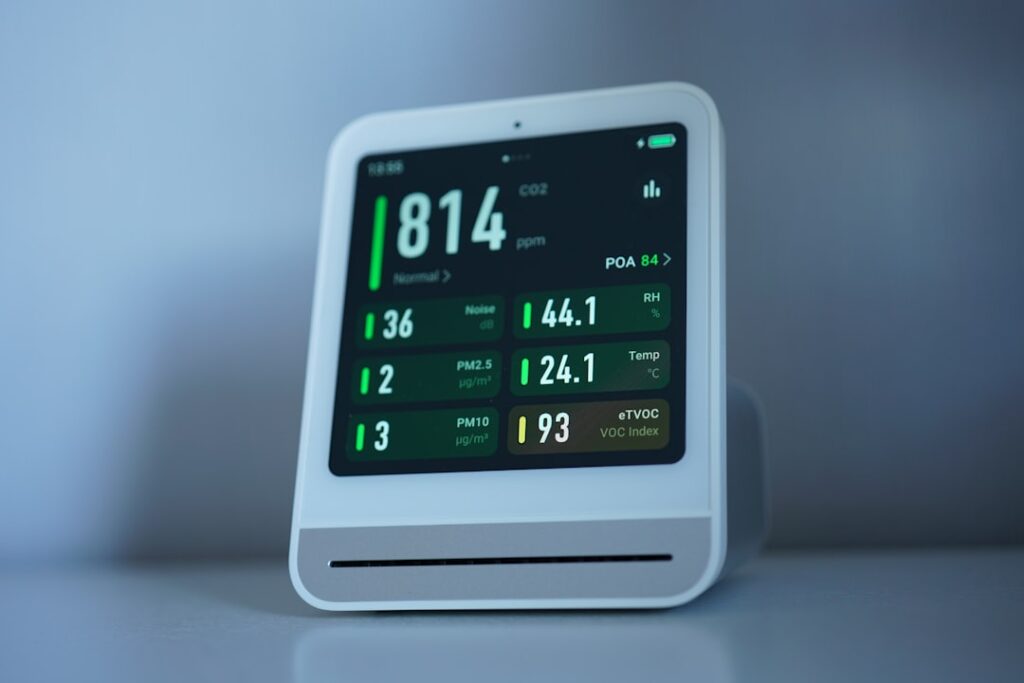AI Tools for Health Monitoring
As the integration of technology into healthcare continues to evolve, health monitoring apps powered by AI have emerged as essential tools for individuals looking to maintain their wellness. These innovative applications not only track vital signs but also provide personalized insights that help users make informed decisions about their health. In this article, we will explore how AI tools for health monitoring are changing the landscape of personal healthcare, their benefits, and what to consider when choosing these apps.
The Importance of Health Monitoring Apps AI
Health monitoring apps utilize artificial intelligence to analyze user data, offering a significant advantage over traditional health tracking methods. By processing large volumes of information, these apps provide a comprehensive view of an individual’s health status. This can include tracking everything from heart rate and physical activity to sleep patterns and dietary habits.
How AI Enhances Health Monitoring
The power of AI in health monitoring lies in its ability to learn and adapt. Here are some ways AI enhances the functionality of health monitoring apps:
- Data Analysis: AI algorithms can analyze data trends over time, helping users understand their health progression.
- Predictive Insights: By recognizing patterns, AI tools can forecast potential health issues, prompting early interventions.
- Personalization: AI tailors health recommendations based on individual user data, making advice more relevant.
Popular AI Health Monitoring Apps
With the increasing demand for AI tools in health monitoring, numerous apps have emerged in the marketplace. Here are a few notable examples that utilize AI technology effectively:
1. MyFitnessPal
MyFitnessPal uses AI to assist users in tracking their nutrition and caloric intake, providing personalized meal suggestions and insights into eating habits.
2. Fitbit
Fitbit’s app leverages AI to analyze data from wearable devices, offering health metrics like activity levels, heart rate monitoring, and sleep quality assessments.
3. Apple Health
Apple Health integrates AI to compile health data from various sources, delivering insights and suggestions tailored to the user’s health profile.
Benefits of Using AI Tools for Health Monitoring
Employing health monitoring apps powered by AI offers numerous advantages:
- Real-time Monitoring: Users can receive instant feedback on their health metrics, enabling timely actions.
- Enhanced Accuracy: AI algorithms can reduce human error in data collection and analysis.
- Increased Engagement: Personalized insights keep users motivated to maintain their health goals.
Considerations When Choosing a Health Monitoring App
While the benefits are substantial, there are essential factors to consider when selecting a health monitoring app:
1. Privacy and Data Security
Ensure the app has robust security measures in place to protect sensitive health information.
2. User-Friendly Interface
Opt for apps that are easy to navigate and understand, enhancing user experience.
3. Compatibility with Devices
Check if the app is compatible with your devices, especially wearable technology that can enhance monitoring capabilities.
Conclusion
AI tools for health monitoring are transforming the way individuals manage their health and wellness. By utilizing advanced data analysis and personalized insights, these apps empower users to take control of their health journey. As technology continues to evolve, incorporating AI into health monitoring will likely become a standard practice, offering even more innovative features and benefits. Whether you are looking to track fitness goals, monitor chronic conditions, or simply maintain a healthy lifestyle, health monitoring apps AI can be a valuable ally in your health management toolkit.
Benefits of AI in Health Monitoring
Health monitoring apps AI provide invaluable benefits that enhance user engagement and improve health outcomes. One of the core advantages is the ability to collect and analyze data in real time, allowing users to receive timely feedback about their health conditions. By leveraging extensive datasets, these apps can recognize patterns and trends that might go unnoticed in traditional monitoring methods. This proactive approach empowers individuals to make informed decisions about their health, ultimately fostering healthier lifestyles.
Personalized Insights and Recommendations
Another compelling feature of health monitoring apps AI is their capability to deliver personalized insights. By utilizing advanced algorithms, these tools can tailor recommendations based on an individual’s specific health metrics, lifestyle habits, and preferences. For example, an app might suggest dietary changes, exercise routines, or stress management techniques adapted to the user’s unique data profile. This customization boosts the effectiveness of health-related interventions, making it easier for individuals to adhere to their health goals.
Future Trends in Health Monitoring with AI
The future of health monitoring is excitedly intertwined with advancements in AI technology. As machine learning and data analytics continue to evolve, we can expect even more sophisticated interventions designed to address diverse health challenges. Emerging trends include enhanced predictive analytics that can foresee potential health issues before they arise, enabling users to take preventative measures. Moreover, the integration of wearables with health monitoring apps AI is set to provide continuous, real-time feedback, further enriching the data pool for personal health management.
Telehealth Integration
As the demand for telehealth services rises, health monitoring apps AI will likely become essential tools for virtual healthcare. These apps can assist healthcare providers in tracking patients’ health statuses remotely, navigating through extensive patient data efficiently. By combining AI capabilities with telehealth solutions, practitioners can enhance patient monitoring, ensuring continuity of care without the need for frequent physical appointments.


